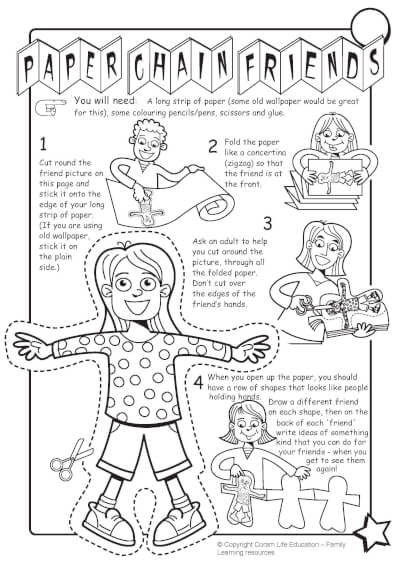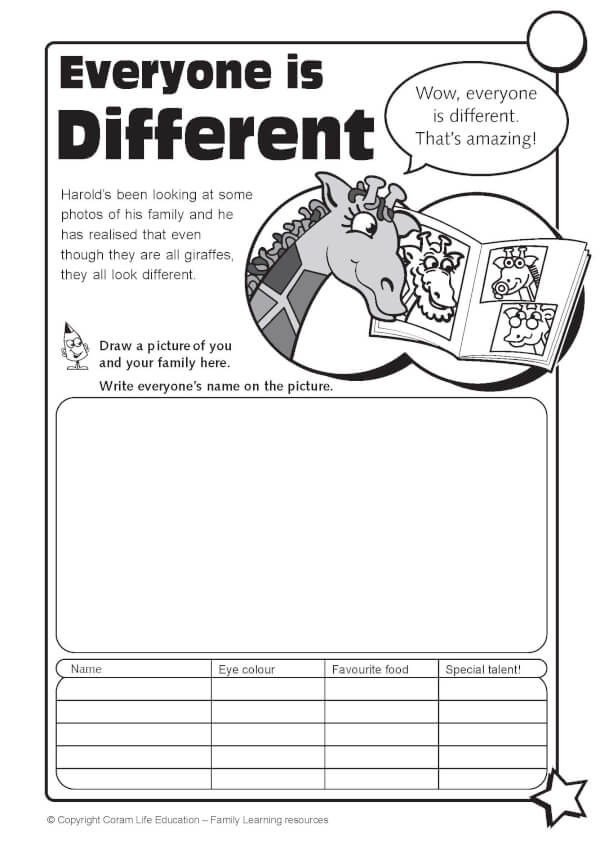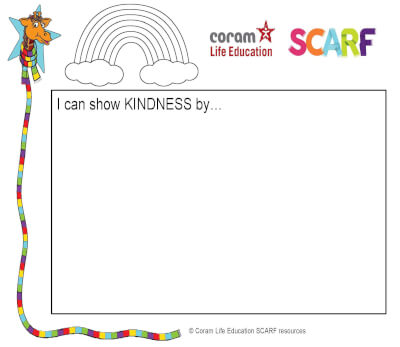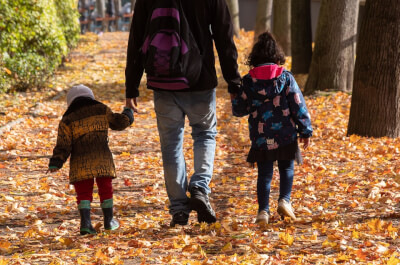SCARF at Home - Activities for 5 to 7 year-olds
What your child will be learning about
- Developing respect for different types of people
- Being kind and helping others
- Listening skills and why they are important
What you can talk about together
- How am I different from my friends and family?
- Do I have to like or enjoy the same things as my friends and family?
- How can I show kindness to other people - in my family and at school?
- Why is listening carefully important? How can I be a good listener?
What you can do together
Activity 1 - Same and different
Start with a conversation about the things that makes us the same as our friends and other people in our family and the things that make us different.
Then make the paper chain friends, following the instructions on the activity sheet below. You'll need some paper for this - you can use scrap paper.

Click on the picture to make it bigger or to print it.
Then, either writing or just talking, try this:
- Think of 3 things that make the paper friends look similar to each other
- Think of 3 things that make them look different to each other
- Think of 3 things that they have in common with each other but which are not to do with the way they look - e.g. all of them are interested in dinosaurs
- Think of 3 things that make them different from each other, but which are not to do with the way they look.
Did you manage to think of three things for each of the four points?
Activity 2 - We're all different, we're all special
We all have things that make us the same as each other and things that make us different - even from people in our family.
This can help to make life more interesting.
Complete this activity with someone at home - you could include friends on your list, too!
You can print the activity, or just copy the table onto some scrap paper before completing it.



Click on the picture to make it bigger or to print it.
Activity 3 - Being kind
Talking points:
- Think about things that you've both done that are kind - these can be very small acts of kindness, such as helping with jobs in the home, saying something nice to someone in the family etc.
- Think about how it feels when you give someone a present. That can feel almost as good as actually being given a present!
- Acts of kindness don't all have to be about giving a present. Can you make a list of five small acts of kindness, such as holding a door open for someone? (maybe count them out on your fingers).
Being kind and doing kind things is something that helps everyone to feel good – including the person doing the kind thing!
Complete this poster together. If you don't have a printer, copy it onto some paper – you could make your own rainbow design!

Click on the picture to make it bigger or to print it.
Activity 4 - Being a good listener
Listening skills are important for everyone to have – young and old. Play these listening games together to help develop your listening skills!
Simon SaysThis classic game is excellent for encouraging children to pay attention and listen to instructions.
Call out instructions by saying, for example, “Simon Says put your hands on your shoulders.”
When you give an example that doesn’t begin with “Simon Says” such as “Stand on one leg!” your child must not do it.
This means that for each instruction, your child must listen for two details:
- Whether or not they must follow the order
- What action they need to do
Do This, Do That
This is a variation of Simon Says.
Standing in front of your child, perform certain actions by saying either “Do this” or “Do that”. For example, you could tap your head, clap your hands or do a jump.
When you say “Do this” your child should copy the action, but when you say “Do that” they should stand still.
It takes a lot of concentration not to move, first listening to whether they should perform the action or not.
Take turns in being the leader.
Go on a Listening Walk
(Only do this if it’s safe to go outside – COVID-19 restrictions.)
This game is great not only for developing listening skills but also for teaching mindfulness and avoiding spending all day listening to the jumble of thoughts someone might have in their head. It's useful for adults, too.
Go for a walk together, in the garden, down the road or to the park. There are usually enough sounds close to home.
Tell each other all the sounds you hear – leaves rustling, a dog barking, a car travelling down a road, a bird chirping, a child crying etc.


